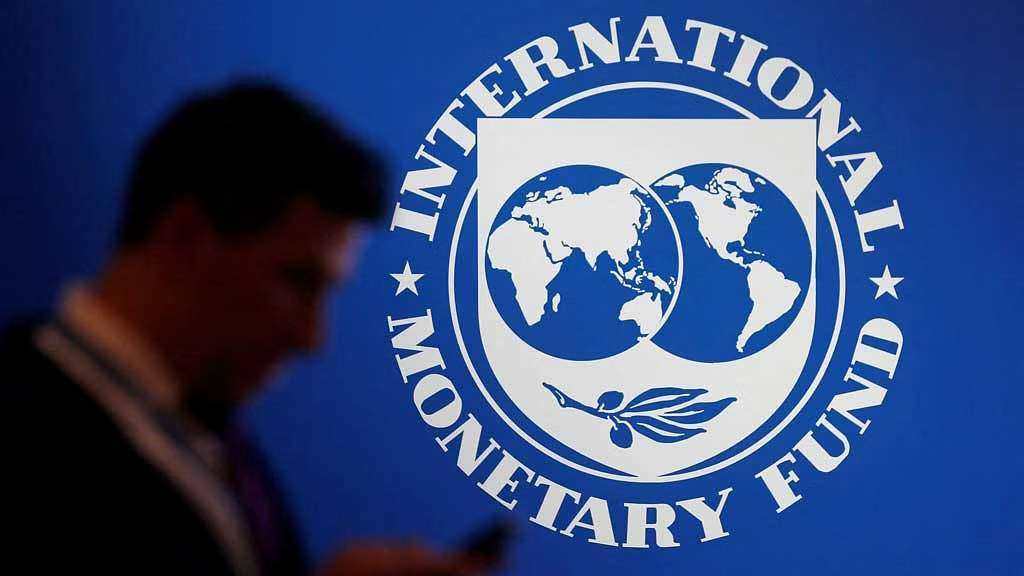Argentina finds itself in a familiar situation as it secures yet another loan from the International Monetary Fund, reminiscent of past financial cycles. For generations, Argentines have perceived their nation as ensnared in a persistent cycle, as yet another loan from the International Monetary Fund is set to arrive to stabilize its fluctuating economy. This marks the 23rd occurrence of this event since the 1950s. The events transpired amid the military dictatorship of the 1970s, the economic and social collapse of 2001, and the banking crisis of 2018. In that year, Argentina secured a groundbreaking loan of US$44 billion from the IMF, marking the largest financial assistance package in the institution’s history.
Under the leadership of President Javier Milei, an economist known for his unconventional views and commitment to reducing the public deficit through state dismantlement, a new loan has been secured, amounting to US$20 billion. For a significant number of Argentines, this situation resonates with a sense of déjà vu. “Continuing with the established trend.” Ariel Cazorla, a 45-year-old musician, articulates his perspective on the matter. “This is not our first experience with this situation,” he stated. He expresses skepticism: “If they’re extending credit to you, it’s because they believe you have the capacity to repay.” It is highly likely that this situation is related to our land holdings. While much remains uncertain, discussions and negotiations are reportedly taking place behind the scenes.
Mistrust is a pervasive theme in Argentine culture, evident in various forms of expression, including the iconic comic strip character Mafalda, created by Quino, as well as in rock lyrics and comedy sketches that have emerged over the past five decades. During a performance in the 1990s, comedian Pipo Cipolatti quipped, “IMF officials meet to solve Argentina’s main problem: the IMF.”
Milei has assured that this time the outcome will be distinct. The funds, according to his statements, are not being allocated in response to urgent crises to prevent financial losses, but instead are intended to strengthen the Central Bank and facilitate a sustainable easing of currency controls — a strategy revealed on Friday alongside the IMF program. In a national broadcast on Friday night, the President emphasized, “Not once in the past 120 years have we had fiscal order, monetary order, and exchange rate order at the same time.”“Never.” This marks a significant inaugural occurrence. Industry experts caution against preconceived notions, emphasizing that this iteration presents a unique and unprecedented scenario.
Current polls indicate that the president’s approval rating hovers between 40 and 45 percent, reflecting a segment of the Argentine population that is supporting this strategic risk. Julio Teitelboim, a 60-year-old pensioner, views Milei as a solution to the fiscal gap created by former Peronist president Alberto Fernández. The government is compelled to seek financing from the IMF. Their strategies are aligning effectively with best practices. “In my view, they are straightforward and transparent,” stated Julio.
Milei’s most significant accomplishment to date has been the management of endemic inflation. On Friday, the latest economic data revealed a concerning trend: inflation increased by 3.7 percent in March, a significant rise from the 2.4 percent reported in the prior month. Former president Cristina Fernández de Kirchner, currently at the helm of the principal opposition party, Partido Justicialista, has issued a stark warning to Milei via a post on the X social network. She cautioned that asset holders are poised to withdraw their dollars from the country. “The Argentine populace will bear the consequences of your choices, your hubris, and your compromises,” she stated. Belén Amadeo, a political scientist at the University of Buenos Aires (UBA), asserts that debt has become an integral part of the national identity.
Countries around the globe are significantly influenced by the European Union and the United States, as these entities play a crucial role in shaping their daily economic landscapes. Similarly, the typical Argentine is aware that the nation has secured loans from the IMF, along with the understanding that the IMF enforces certain conditions, she stated to AFP. “The narrative suggests that the IMF is positioned as the antagonist, pressuring us to repay a loan at exorbitant rates,” she stated. “There exists a perception of reliance or dominance.” There is a significant degree of oversimplification, with many individuals adhering to the narratives presented by politicians.
Historian Felipe Pigna asserts that loans from the International Monetary Fund have traditionally not been allocated for the advancement of industry or the financing of infrastructure projects, but rather have been secured solely for financial motivations. “The dynamics of our relationship with the IMF are pivotal to the overall landscape of life in Argentina.” The inability to construct a school is attributed to financial obligations to the International Monetary Fund. “It’s dramatic,” he stated in an interview with AFP. According to him, there is a prevailing sentiment among ordinary Argentinians who express strong disdain for the IMF. Pigna emphasizes that the core issue lies in sustainability. “The development of industry necessitates subsequent imports.” What tools or methods are utilized for importing? Currency.
Argentina occasionally faces a situation where its export revenue falls short of meeting its import needs. This situation results in a negative trade balance, which is compounded by significant debt levels. “This issue has been a significant bottleneck that has been discussed since the 1950s,” he stated.

